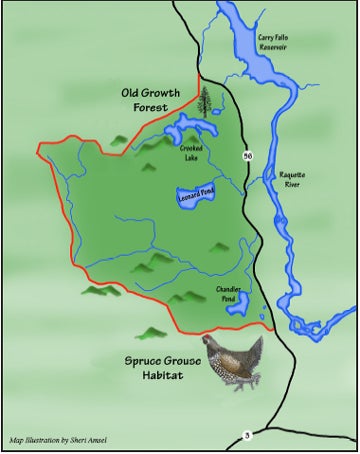Adirondack Voters Asked to Approve Illegal Power Line

On Tuesday, residents of New York’s Adirondacks will be asked to vote “yea” on the construction of a power line. The reality: It’s needed–Tupper Lake has had recent power outages for more than 24 hours, which could endanger lives in winter. The catch: It’s already been built, right through the middle of the hallowed and forever-wild Forest Preserve.
According to Adirondack Explorer, if the proposal is approved, New York will trade National Grid a six-acre, two-mile strip along Route 56 where the line was built last year for a forty-three-acre parcel along the South Branch of the Grass River.
It’s the lesser of two evils. In the trade, the power line goes through land that was supposed to be forever wild, but in exchange the state gets a larger parcel of land in ancient boreal forest with endangered spruce grouse habitat. The line, had it gone through the boreal forest, would have crossed ninety-five streams and wetlands, according to the Adirondack Council.
In the Explorer, John Sheehan of the Adirondack Council says it’s a good deal for the state. “That forest has not been disturbed, as far we can tell, since the last ice age,” Sheehan said.
All parties were put in a bit of a bind, as National Grid was under federal orders to build the line by the end of last year, so work could not be delayed under after next week’s referendum. It’s an interesting example of when the illegal-in-fact ends up as the better choice, and when asking for forgiveness instead of permission works out better in the end for everyone. For the sake of the greater good, the Adirondack Council and other environmental groups decided not to sue. The state Department of Environmental Conservation (DEC) also agreed not to sue if National Grid pursued the constitutional amendment allowing the land swap. The amendment, now known as Ballot Proposal One, has already been approved by two successive state legislatures—a prerequisite to getting it on the ballot.
The Adirondack Council’s website contains an explanation of the proposal as well as its exact wording as well as links to pro landswap editorials.
-Berne Broudy